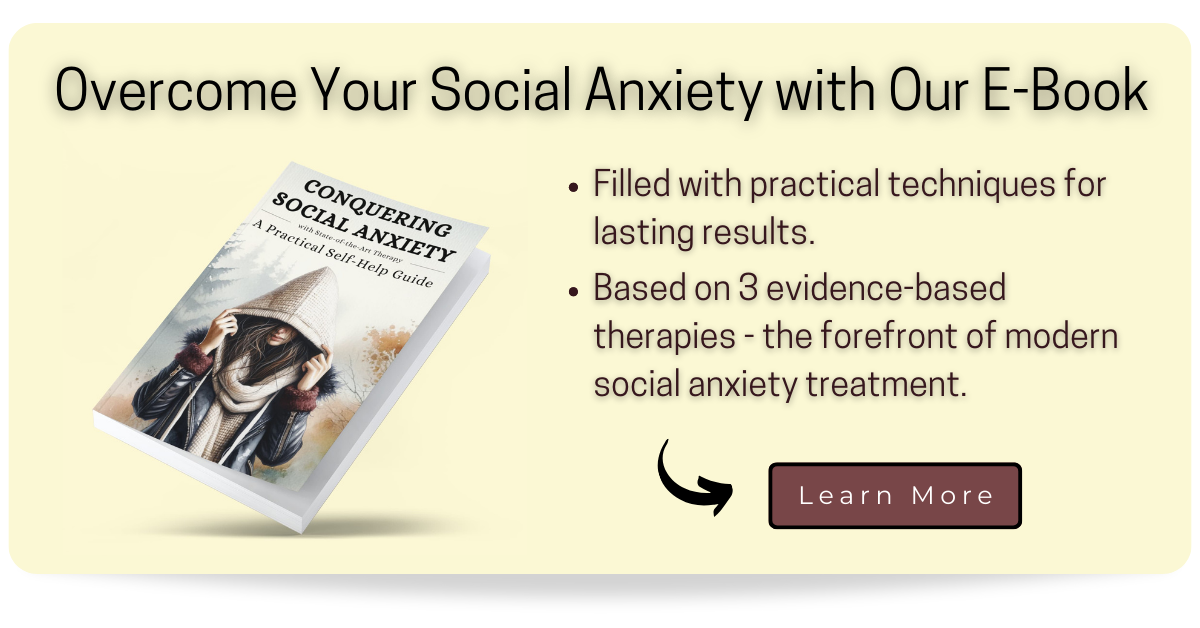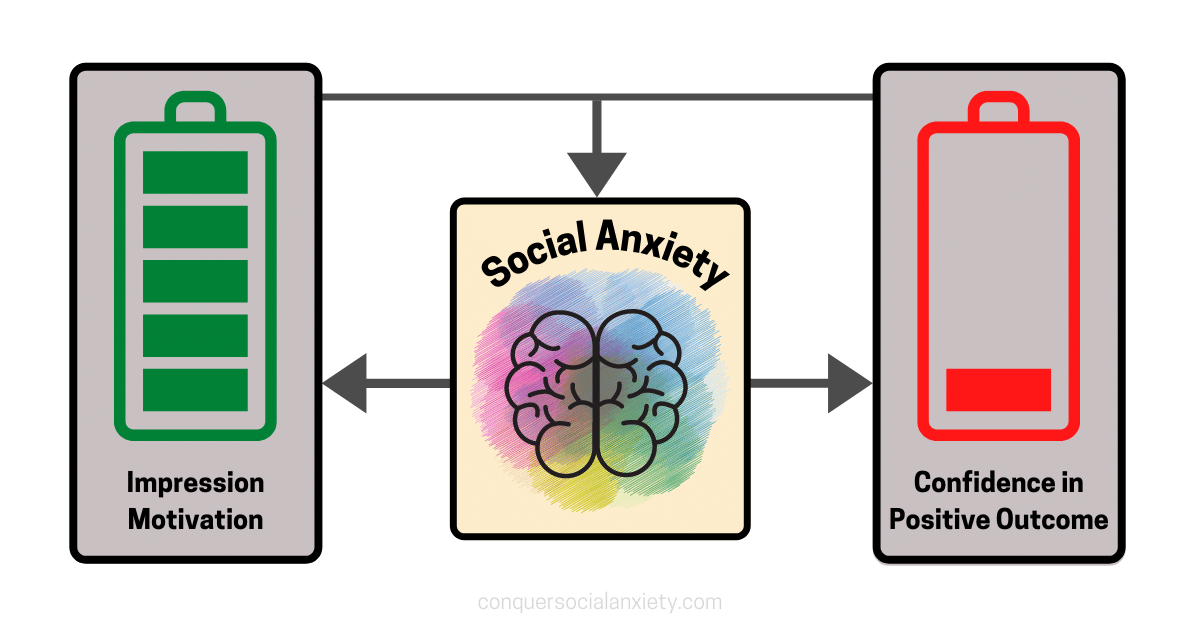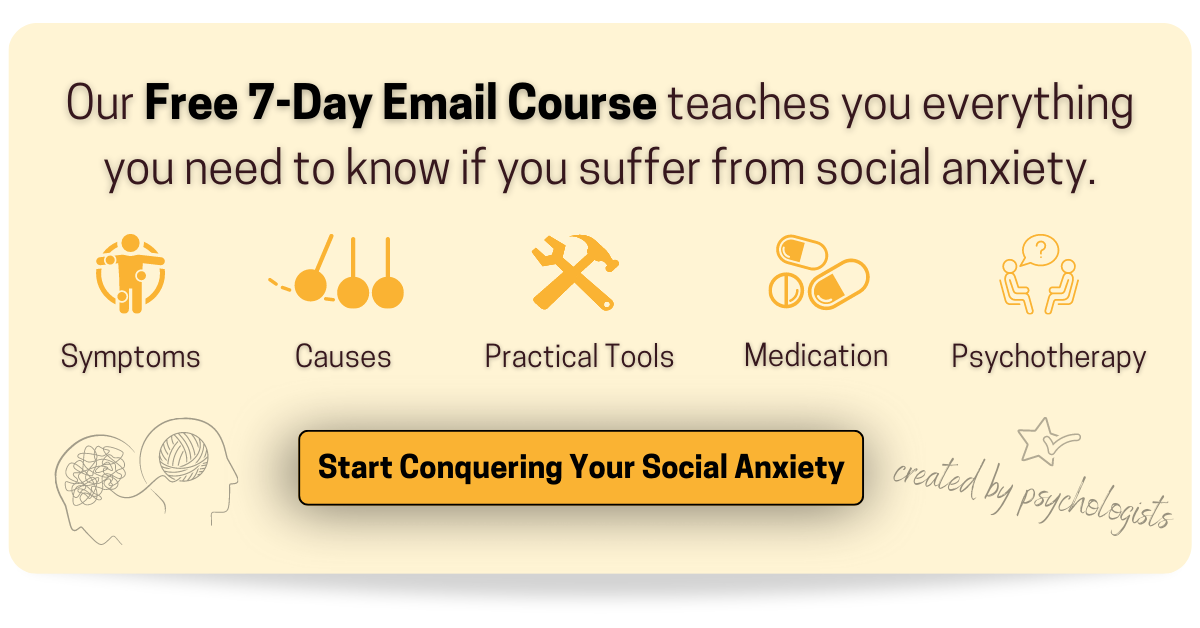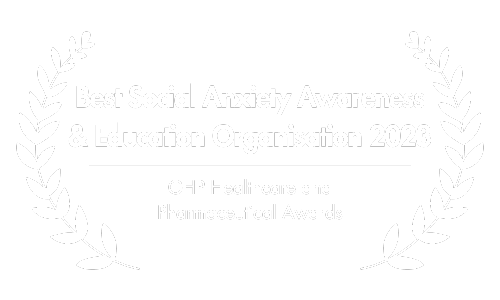Fear of Reading Out Loud: Why You Panic & How to Prevent It
This article includes recommendations for two books & an online therapy service that help with social anxiety. Some of our links may grant you a significant discount and we may earn a commission, which supports the maintenance of our website.
You have just been called up in class. “Please read this passage out loud for all of us.“, the teacher says.
You take a deep breath while checking how long the paragraph is. It is an entire page.
Your heart rate increases, you feel the adrenaline running through your body, your breath gets short.
While you start reading with a shaky voice, you try your best to calm down. Unfortunately without success.

You run out of air and your voice cracks up. You stop reading, as the words just won’t come out of your mouth any longer.
As embarrassed as you could feel, you raise your head to see the reactions of your classmates.
Some seem confused, others seem to be having the time of their lives, pointing their fingers at you while laughing.
Your teacher shakes her head, “Well, this was disappointing.“, before asking another student to get the job done.
You lower your head, hold back your tears, and can only think of one question: Why?

Why Do You Get Anxious When Reading Out Loud?
If you identify with the above scenario, it is likely that you have had similar experiences and find yourself clueless as to why you get so anxious when reading out loud in front of others.
Anxiety when reading aloud, such as in a class setting, is triggered by an excessive fear of being negatively evaluated and often leads to a fear of the anxiety itself. Attempts to control or reduce the anxiety symptoms usually exacerbate them, which can then result in a full-blown panic attack.
People who suffer from this phenomenon have usually made negative experiences in similar scenarios in the past.

For example, you may have been criticized for committing reading errors or your classmates may have laughed about your performance.
Because of this negative memory, your brain rings an alarm whenever you encounter a similar situation.
Psychologists call this process fear conditioning.
Fear conditioning occurs when the brain associates a neutral stimulus, such as being called up to read out loud, with a negative stimulus, such as being laughed at by classmates.
The result is an anxiety reaction whenever you are faced with the stimulus that was initially neutral (being called up to read out loud).
But that’s not the whole story yet. A certain level of fear and arousal when reading aloud to others is somewhat normal.
That is, most people get fairly nervous when having to expose themselves to others, such as when giving a presentation or reading a text in front of a larger group.

The real problem arises when people do not tolerate their anxiety and try to fight and control it.
People who fall into this category are typically highly alert to any internal changes that may indicate an anxiety reaction.
For example, when your teacher asks you to read out loud a certain text passage, you tune in to your bodily sensations to see if you are feeling any anxiety.
You may keep an eye on your heart rate, your breath, your perspiration, any signs of shaking, the firmness of your voice, and so on.
By directing your attention to these sensations, you are likely to perceive any potential changes in arousal.

Because you regard such changes as dangerous (because they mean you are getting more anxious), you are likely to have an additional anxiety reaction as a result.
As you try to control your incrementing anxiety, you are pouring gasoline on the fire. Your conscious attempts to calm down end up making you more anxious.
At this point, you interpret your increasing anxiety as an even bigger threat. This triggers yet another anxiety reaction.
This vicious cycle of anxiety reinforces itself until you can no longer read properly and need to stop.
There it is: You just experienced a panic attack.

How to Prevent Anxiety & Panic When Reading Aloud?
Now that you understand what happens inside your mind and body during these anxiety reactions, let’s have a closer look at what you can do about them.
1. Allow Feelings of Anxiety to Arise
One of the main reasons your anxiety goes overboard is very likely that you interpret any sign of arousal as potential danger.
If that is the case, chances are that you try to suppress any feelings and sensations of anxiety as soon as you perceive them.
Psychologists refer to this phenomenon as anxiety sensitivity.

Affected people are convinced that sensations associated with anxiety, such as a rapid heart beat and shortness of breath, are dangerous.
In the case of reading out loud, the manifestations of anxiety are believed to be reason for scrutiny and feelings of embarrassment.
Although your experiences may have confirmed this idea, do not commit the mistake and try to suppress these sensation, as this only exacerbates them.
Instead, take a conscious decision to allow such feelings and symptoms of anxiety to arise.
Whenever you catch yourself trying to fight or suppress them, remind yourself to let them come up and be with you, despite their uncomfortable nature.
2. Focus On the Content Of the Text
People who experience anxiety sensitivity typically pay close attention to their bodily sensations in stressful situations.
If you experience intense anxiety when reading out loud in front of others, chances are that you scan your body for any feelings of arousal.
In other words, your mind is on high alert, trying to detect any potential “danger” (which in this case are your physical manifestations of anxiety, such as the rush of adrenaline through your body).
If you pay close attention, you will most certainly perceive such changes, and given that you associate these sensations with negative consequences, this increases your anxiety.
So, instead of focusing on the anxiety in your body, try to pay close attention to the text you are reading.

Try to actually understand what is being said in the text, just as if you were reading it at home by yourself.
If you focus on the content of the text, you will not be preoccupied with increasing anxiety levels.
As a result, your anxiety is more likely to be kept at bay.
3. Read Aloud Voluntarily Whenever Possible
Fear conditioning typically leads to avoidance of the feared stimulus. In your case, you avoid reading out loud whenever possible.
While this strategy may work on the short run (unless you are forced to read aloud), it becomes very problematic in the long term.
By avoiding to read in front of others, you maintain the idea that the situation is dangerous and that you are not able to handle it.
This can be compared to someone who was bitten by a dog. Because of this traumatic experience, the person is likely to avoid dogs whenever possible.
However, only by exposing themselves to the animal again can they learn that dogs are actually very friendly and mostly harmless creatures.
Likewise, only by exposing yourself to the feared scenario (reading out loud) will you be able to reduce your fear and learn that you are able to handle this task.

In psychotherapy, exposure exercises are among the most powerful interventions that exist.
Typically, you would start with a situation that provokes you to be somewhat anxious. This could be volunteering to read short paragraphs.
As you grow more comfortable with these, you can increase the length of the texts you read to others.
For this strategy, it may be helpful to talk about your difficulties with your teachers. Most teachers will be receptive and agree to let you read the shorter paragraphs whenever they come up.
4. Practice Regular Mindfulness Meditation
As you have been able to see throughout this article, your reactions to your emotions and physical sensations play a crucial role when it comes to your anxiety when reading out loud.
The same accounts for your attentional processes (remember the difference between paying attention to your bodily sensations and focusing on the content of the text).
Mindfulness meditation is a practice that addresses these two areas.
Mindfulness teaches you to observe your emotions, feelings and physical sensations without the need to change them in any way.

Likewise, it trains your brain to tune out on irrelevant or unhelpful stimuli and tune in on whatever you choose to pay attention to (such as the content of the text).
Practicing it regularly is very likely going to have a huge impact on your ability to focus on the contents of the texts you read and help you refocus whenever your attention drifts towards your anxiety.
At the same time, it will have a decisive impact on your relationship to your uncomfortable thoughts, feelings and physical sensations.
Through regular practice, you will learn to react in a different, more healthy way to these uncomfortable phenomena – meaning that you will not fight, but rather accept them and let them come and go.
This, in turn, will minimize the chances of suffering another panic attack when reading out loud to others.
5. Reduce Your Fear of Negative Evaluation
As we pointed out earlier, your fear of reading out loud can very likely be traced back to a marked fear of being negatively evaluated.
Fear of negative evaluation is the hallmark of social anxiety disorder (American Psychiatric Association, 2013).
Social anxiety arises when you are highly motivated to generate a specific impression on others, but doubt that you will be able to do so successfully.

People affected by it tend to be excessively concerned about being judged or rejected in social settings.
If your fear of reading out loud persists despite following the above recommendations, you may suffer from social phobia.
However, this is no reason for despair. There are effective, scientifically-proven interventions for this condition.
If you think you might be affected, we invite you to read our introductory guide to social anxiety disorder and talk to a mental health care professional about your situation.

Recommendations for Further Support
Here are some recommendations to provide a more comprehensive approach to managing your social anxiety:
Book Recommendation
Brené Brown’s “The Gifts of Imperfection” delves into the complexities of shame and vulnerability. Brown’s research-based insights can offer you a deeper understanding of your emotional experiences and guide you towards embracing your imperfections. You can order it here.
Workbook Recommendation
Our eBook, ‘Conquering Social Anxiety With State-of-the-Art Therapy: A Practical Self-Help Guide’, provides a comprehensive collection of proven, evidence-based exercises designed to help overcome social anxiety.
It incorporates various advanced techniques from the leading edge of social anxiety treatment. Available for immediate download in PDF format, this guide is an accessible resource for starting your journey towards increased social confidence.

Online Therapy Recommendation
Our partners from Online-Therapy offer a tailored experience, including 1 live session per week (video, voice, or text), unlimited messaging, an 8-section CBT program with 25 worksheets, daily worksheet replies, yoga, meditation videos, a journal, activity plan, and self-assessment tests.
You can even switch therapists easily for the right fit, all while ensuring a secure and confidential therapeutic environment.
When registering, make sure to choose ‘individual therapy‘ and then select ‘social anxiety‘. After that, you can provide further details about your particular situation.
Their plans start at just $40 per week. You can use the following link to sign up, which will grant you a 20% discount for your first month of therapy.

Also, if you’re eager to embark on a journey of exploration through diverse therapeutic avenues to address social anxiety, we invite you to discover our comprehensive therapy guide by clicking right here.
Furthermore, if you’re seeking a comprehensive overview that spans therapy, medication, and self-help approaches, you’re welcome to dive into our in-depth guide available here.
In addition, we have created a comprehensive guide to pharmacotherapy for social phobia. If you are interested in medication approaches, just click here.
Still have lingering questions? Take a step toward clarity and empowerment by enrolling in our Free 7-day Email Course. We’re dedicated to being your guide on this journey of understanding and growth.

American Psychiatric Association. (2013). Diagnostic and statistical manual of mental disorders (5th ed.). Arlington, VA: American Psychiatric Publishing.

About the Author: Martin Stork
Martin is a professional psychologist with a background in physical therapy. He has organized and led various support groups for people with social anxiety in Washington, DC and Buenos Aires, Argentina. He is the founder of Conquer Social Anxiety Ltd, where he operates as a writer, therapist and director. You can click here to find out more about Martin.










I’m glad I’m not the only person on earth who suffers from this. It changed my life, negatively. School, career choices. Everything I could to avoid reading or speaking in public.sa
Hi, thank you for sharing. Unfortunately, this phenomenon is all too common, affecting many people. What you describe is very typical, as others usually do not comprehend what is going on and affected people often feel like there is something fundamentally wrong with them. That’s why raising awareness is a first step, for affected people but also for the general public. All the best!
This really put a big smile on my face this night.
I didn’t experience this phobia in school but now that I’m all grown up, coming from a Christian family, I’m made to read the Bible during devotion and I can say I’ve had my share of embarrassing moments in front of not more than 4persons…. Who don’t even judge me.
I’m positive this will help me out tomorrow morning.
Thanks again.
To explain the why of a behaviour when one is unable to do so, puts the correct words to the issues. As a man who is 57, I quietly suffer multi cases of this. Yet this article will help me identify my anxieties to calm down to access my surroundings and myself to engage properly in speaking to other as well as reading out loud. I definitely enjoyed this article and felt like I am not the only one who feels this way.
Thank you for sharing your experience with us. It’s heartening to know our article has resonated with you and helped in some way. Remember, you’re not alone in this journey. We all have moments of anxiety. Your courage in speaking out offers comfort and inspiration to others facing similar challenges.